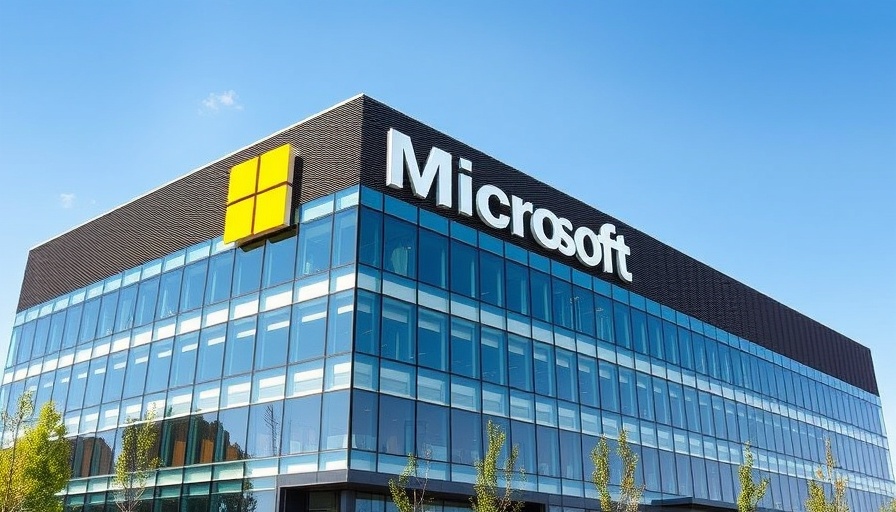
Revolutionizing Healthcare: Microsoft Unveils AI Voice Assistant at HIMSS25
At the recent HIMSS25 conference, tech giant Microsoft has made a significant stride in modern healthcare by introducing Dragon Copilot, an innovative voice-activated AI assistant designed specifically for clinicians. This cutting-edge technology integrates voice dictation, ambient listening, and generative AI capabilities to streamline clinical documentation and enhance the overall workflow for healthcare professionals.
What is Dragon Copilot?
Dragon Copilot combines the proven features of Dragon Medical One (DMO), which excels in natural language speech recognition, and DAX Copilot, known for its ambient listening capabilities. This powerful synthesis creates a unified workspace that enables clinicians to dictate medical notes, access information, and automate tasks—all within a single application. Joe Petro, Microsoft's corporate vice president of Health and Life Sciences Solutions and Platforms, emphasized that this launch reflects a decade's worth of expertise aimed at improving clinician well-being and reducing administrative burdens.
Impact on Clinician Workflows
The introduction of Dragon Copilot is poised to have a profound impact on clinician workflows. According to reports, over 600,000 clinicians currently rely on Dragon Medical One to document patient interactions, resulting in billions of patient records. The DAX Copilot has already facilitated more than 3 million ambient conversations across various healthcare organizations within just one month. The ability to automate key tasks—such as creating referral letters or summarizing patient visits—will allow clinicians to focus more on patient care instead of paperwork, thus potentially reducing burnout.
Clinician and Patient Benefits
Research has shown that implementing AI and automation in healthcare settings can lead to better clinician satisfaction and improved patient experiences. In fact, it has been reported that 70% of clinicians using these technologies have experienced reduced feelings of burnout. Additionally, surveys indicate that 93% of patients report a better overall experience when clinicians use advanced AI technologies like Dragon Copilot. This technology promises not just to enhance documentation but also to enrich the patient-physician interaction by allowing caregivers to devote more time to patient conversations.
Addressing Administrative Challenges
Amid growing concerns about clinician burnout—exacerbated by high administrative workloads—Dragon Copilot comes as a timely solution. Microsoft’s research indicates that burnout rates, which were 53% in 2023, have fallen to 48% largely due to technological advancements that streamline workflow. With the aging population and thus increasing patient demands, the need for such intelligent solutions has never been more vital in delivering healthcare efficiently.
Looking Forward: The Future of AI in Healthcare
The implications of AI in healthcare extend beyond mere documentation. Microsoft's Dragon Copilot sets a precedent for future innovations, fostering a culture where clinicians are empowered to deliver quality care without being overwhelmed by administrative tasks. With significant advancements in AI technology expected, we're likely to see further integrations that will continue to enhance the healthcare ecosystem, ensuring clinicians have the tools they need to focus on patient care.
Common Misconceptions About AI in Healthcare
Despite the benefits, there are lingering misconceptions surrounding AI in healthcare. One prevalent myth is that AI could replace clinicians, which is far from the truth. Instead, these tools serve to augment their capabilities, allowing for improved patient outcomes while maintaining the human touch that is central to healthcare.
Conclusion: Embrace the Future of AI-Driven Healthcare
As we witness the unveiling of Dragon Copilot, it’s essential for healthcare providers and patients alike to embrace this new frontier. Understanding the advantages of AI-driven technologies can lead to more informed decisions and a more proactive approach in managing healthcare challenges.
Stay informed about the ongoing developments in AI technology and how they can contribute to a healthier community. The future of AI in healthcare looks bright, with Microsoft leading the charge. Explore these innovations further and consider how they can impact your healthcare experience.
 Add Row
Add Row  Add
Add 




 Add Row
Add Row  Add
Add 

Write A Comment